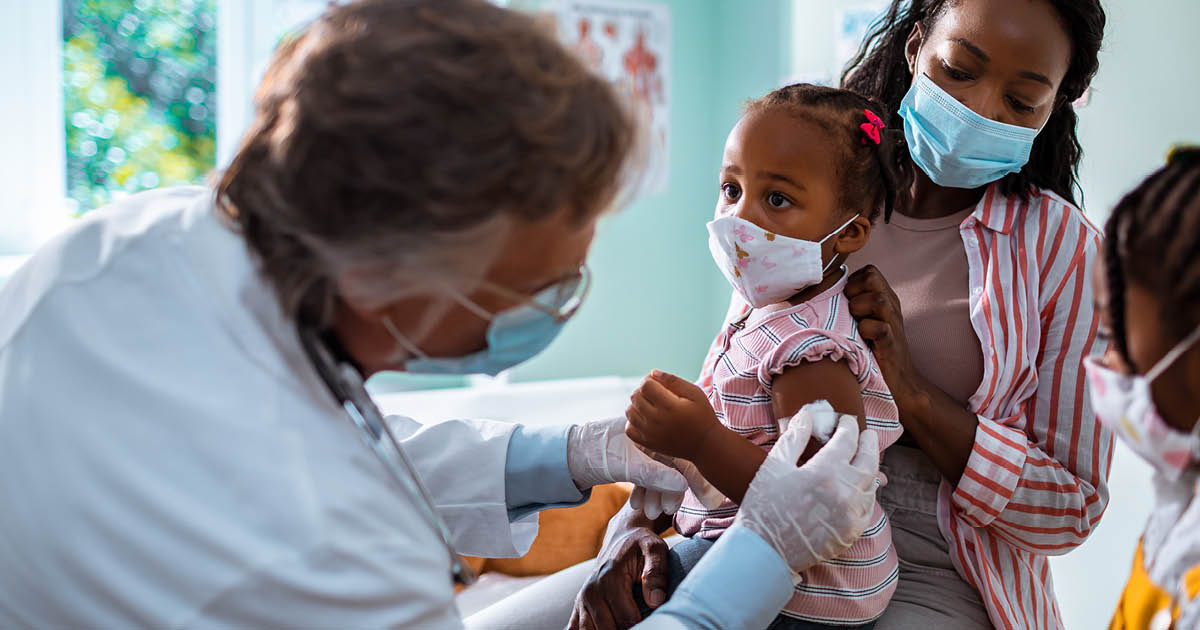Oct. 18-24 is International Infection Prevention Week. This observance strives to promote the critical work infection preventionists do to protect public health. Amidst the Coronavirus 2019 (COVID-19) pandemic, this year has seen a dramatic rise in conversation around infectious diseases. For Zachary Hoy, M.D., a physician and Practice Medical Director at Nashville Pediatric Infectious Disease (part of Pediatrix Medical Group), it’s his specialty. His practice’s primary focus is consultation for infection and immune deficiency in children. Infectious disease treatment is considered a cognitive care specialty. Clinicians treat the entire body system and are often tasked with determining if repeat illnesses are more than just recurrent problems. We spoke to Dr. Hoy, who refers to himself as a “disease detective,” to understand what’s important when considering infectious diseases.
Education is infectious
A large part of an infectious disease clinician’s role is providing public health education. Typically, parents of referred children have received initial information from their primary care provider or spent time searching the internet for information, where quality varies. Most infections are not common knowledge; people do not know specifics about or even the existence of certain infections unless they’ve had relatives with it.
One example of a successful infectious disease education initiative is seen in the decreasing concern of HIV transmission from pregnant mothers to their babies. Today, with improved protocols in place, this type of transmission is less common than we have experienced during the early years of the HIV epidemic. Proper prenatal care is crucial, and better education on this topic has had an impact.
The importance of vaccines
One thing that Dr. Hoy continues to educate parents on is the benefits of vaccinations. Dr. Hoy takes a fact-based, scientific approach to education and works to reduce decisions led by emotions. Dr. Hoy seeks to understand what information about vaccines parents may already know or not know and fills in knowledge gaps.
Dr. Hoy shared some key information about vaccinations for parents to consider:
- You can’t get the flu from the flu shot. Your body produces antibodies, and any flu-like reactions resulting from a flu shot are a reaction to those antibodies and not the flu virus itself. For those who ultimately contract the flu after being vaccinated, the vaccine may help decrease illness severity.
- Vaccines are safe. Researchers and physicians are continually striving to make vaccines safer with the fewest ingredients necessary to accomplish immunity.
- While some argue the increase in vaccines, especially those on the recommended child and adolescent immunization schedule, is introducing more harm to our bodies, Dr. Hoy shares that it’s more important to limit how many proteins our bodies are exposed to with each vaccine. Advancements in vaccine production mean that even with exposure to a higher volume of vaccines, there is lessened exposure to new proteins than in the past.
- There is no link between the MMR (measles-mumps-rubella) vaccine and autism. This fear has decreased the prevalence of MMR vaccines in recent years. The reduction of vaccinations and the false perception that the measles disease has become dormant has, in turn, led to more outbreaks. Measles, whose highly infectious particles can produce rare complications, is a vaccine-preventable disease. Yet, the fear of unproven side effects continues to loom. Parents should know the risks associated with forgoing the MMR vaccine are very high, and there is fact-based evidence to support the need for the vaccination.
How to prevent the spread of infection
Handwashing and good hand hygiene are essential, which we have all become more accustomed to as a result of COVID-19. There are numerous things that people don’t realize can carry diseases, such as phones and keys. Regular decontamination of frequently touched items should be coupled with good hand hygiene to help prevent the spread of germs. For minimizing the spread of COVID-19, wearing a mask can decrease transmission, but hand washing is still essential.
Infection prevention is focused not just on the individual but on the potential impact on entire communities. We all need to do our part to stay educated and safe.
Can't find time to read? Listen instead!
